Safety and rights for lesbians in Europe

On International Lesbian Day, we highlight the recent report by the Committee on Equality and Non-Discrimination, emphasising the need for targeted policies to protect lesbians from violence and discrimination across Europe
Lesbian, bisexual, and queer (LBQ) women face profound challenges rooted in discrimination, violence, and systemic inequality. The recent resolution and report adopted by the Parliamentary Assembly of the Council of Europe on 03 October highlights the urgent need for comprehensive policies that address these issues. Intersectional discrimination, where sexual orientation and gender intersect for LBQ women and the marginalisation that stems from that intersection, complicates the landscape of human rights that LBQ women should have access to, requiring specific actions to ensure their protection.
The report outlines that LBQ women, including trans and intersex LBQ women, experience multiple forms of violence and harassment, which can manifest in both public and private spheres. Violence ranges from physical assaults and psychological abuse to online harassment, often targeting women who do not conform to traditional gender roles. For instance, a survey by the EU Fundamental Rights Agency highlighted that 33% of lesbian women in Europe have avoided public spaces out of fear of violence or harassment, demonstrating the pervasive atmosphere of insecurity they face.
This violence is intensified for racialised LBQ women, who navigate an additional layer of discrimination. The report notes that racial stereotypes can subject them to heightened prejudice, affecting their access to healthcare, housing, and employment. Many racialised LBQ women report feeling pressure to conform to heterosexual norms, further marginalising their identities and experiences.
The effect of anti-gender movements
The increasing influence of anti-gender movements across Europe worsens these issues, aiming to silence and delegitimise the rights of LGBTI people, particularly LBQ women. The report emphasises the need for legislative frameworks that protect human rights, asserting that all women should have equal access to the protection and support guaranteed by international conventions, such as the Istanbul Convention. The resolution calls for Member States to enact anti-discrimination laws that address not only sexual orientation but also gender identity and expression and sex characteristics, creating an inclusive environment for all.
Education challenges prejudice
Furthermore, the resolution highlights the importance of inclusive education programmes as a means of challenging prejudice. Educational institutions must serve as spaces for progress, promoting understanding of diverse identities while dismantling harmful stereotypes. By co-creating a culture of respect and inclusivity, we can work towards reducing the stigma and violence faced by LBQ women.
Comprehensive policies
To move beyond mere visibility and call for actionable change, the resolution notes that governments must adopt comprehensive policies that protect the rights of LBQ women, ensuring that their voices are heard in legislative processes. This includes but is not limited to recognising the parental rights of same-sex couples, ensuring equitable access to healthcare, and supporting emergency shelters that cater specifically to the needs of LBQ women.
By adopting the recommendations presented in the resolution, we can create a safer and more inclusive Europe where every lesbian can live authentically and with less fear of violence or discrimination. It is crucial to transform visibility into meaningful action, ensuring that no one is overlooked in the continuous fight for equality.
Intersections: The LGBTI II Survey Analysis project
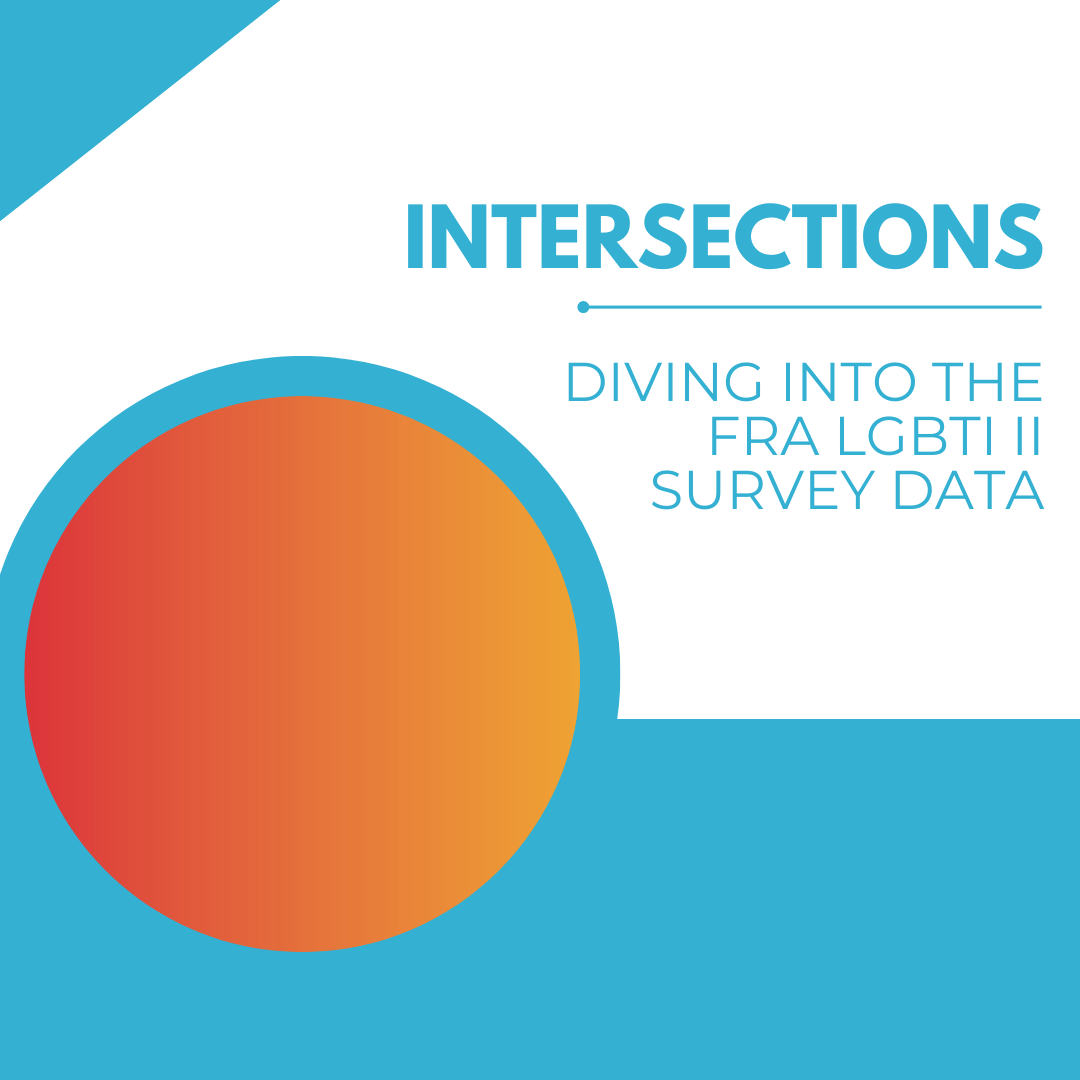
Disaggregated data, which can look deeply into the lived experiences of marginalised people, is a key demand of LGBTI and other human rights groups. With this in mind, over the last year ILGA-Europe have been partnering with a variety of NGOs in the region to analyse the FRA 2019 LGBTI Survey II data and pull out experiences of those experiencing intersectional marginalisation.
This work is based on analysis co-commissioned by ILGA-Europe and TGEU.
Intersections: The LGBTI II Survey – Lesbians Analysis
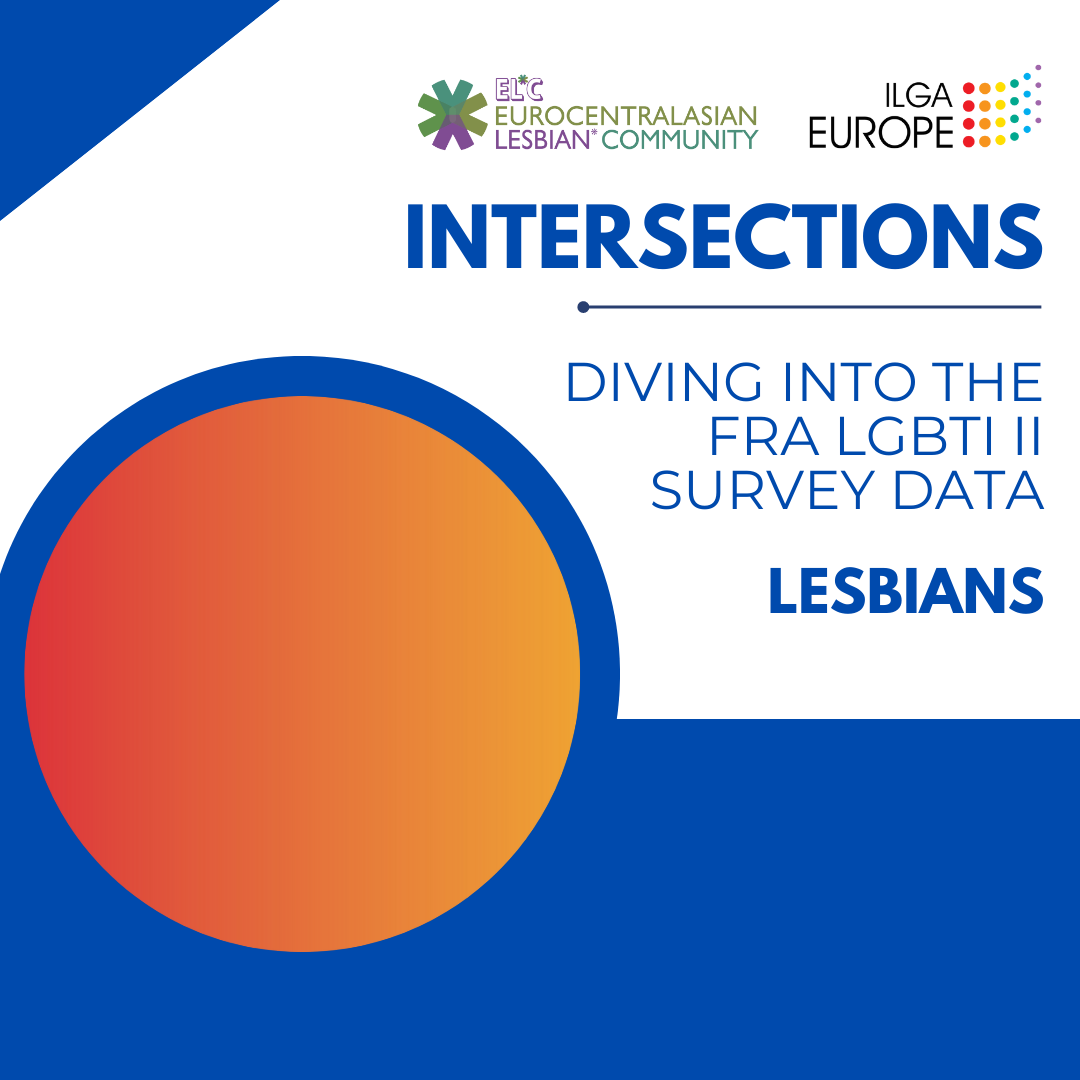
Disaggregated data, which can look deeply into the lived experiences of marginalised people, is a key demand of LGBTI and other human rights groups. With this in mind, over the last year ILGA-Europe have been partnering with a variety of NGOs in the region to analyse the FRA 2019 LGBTI Survey II data and pull out experiences of those experiencing intersectional marginalisation. This work is based on analysis co-commissioned by ILGA-Europe and TGEU.
Over the coming months, watch this space for in-depth briefings on youth, intersex people, religious and ethnic minorities, older LGBTI people, trans people, and others.
This, our briefing on Lesbians was carried out alongside the EuroCentralAsian Lesbian Community EL*C.
Update: The Rights of Rainbow Families in the EU

The Court of Justice of the EU has ruled in two occasions over recent months that EU countries must protect the freedom of movement of rainbow families. This is a right all EU citizens should enjoy, LGBTI people too. In today’s blog, we bring you the state of LGBTI people’s family rights in different EU countries.
Baby Sara and Baby Sofia are too little yet to understand the change they’ve brought about for rainbow families in the EU. They don’t know that they share similar experiences. Both were born in Spain to lesbian couples and both were at risk of statelessness during the first years of their lives.
For quite some time, Sofia, daughter of Irish and Polish mothers, and Sara, daughter of British and Bulgarian mothers, did not have access to identity documents and couldn’t leave Spain. One of the reasons was that the countries of one of their mothers, Bulgaria in the case of Sara, and Poland in Sofia’s, refused to recognise the birth certificate issued in Spain because the parents in the documents were two persons of the same sex. After the Court of Justice of the EU rulings on their cases, both Sara and Sofia have helped to further the protection of rainbow families’ rights in the European Union.
First it was Baby Sara. At the end of 2021, the CJEU issued a landmark judgment in her case, stating that if one EU country recognises the child’s parental relationship, as Spain had done, then all EU countries should do the same, and so guarantee the child its freedom of movement across the region, which is a right of all EU citizens. The court decreed that Bulgarian authorities must issue an identity card or a passport to baby Sara, and that all other EU countries should recognise and follow this ruling.
In June 2022, the CJEU confirmed this in the reasoned order in the case of Baby Sofia’s, stating something very similar: when an EU country has recognised two persons of the same sex as parents of a child, then the EU country of which that child is a national, should issue identity documents to that child with both parents on them, and all EU countries should protect the right to freedom of movement of the child and their family. Poland has been told that it must now provide the child with identity documents and guarantee her and her parents the right to move and reside freely in the country.
These are protections granted in Articles 20 and 21 of the Treaty on the Functioning of the European Union (TFEU) and Articles 7 and 24 of the Charter of Fundamental Rights of the EU, among others.
The cases of Baby Sara and Baby Sofia have strengthened the freedom of movement of LGBTI families across the EU as citizens of the Union, which does not necessarily translate into changes in national legislation Union. The family rights of LGBTI people vary significantly across the Union.
Have a look at the family rights of LGBTI people in the EU:
13 countries recognise marriage equality and joint adoption for same-sex couples.
They are: Austria, Belgium, Denmark, Finland, France, Germany, Ireland, Luxembourg, Malta, Netherlands, Portugal, Spain and Sweden.
Bonus: Some weeks ago, Slovenia’s Constitutional Court ruled that marriage is a life union of two persons, paving the way for same-sex marriage and adoption. The Court gave the Slovenian Parliament six months to comply with this decision.
In 13 countries registered partnership with similar rights to marriage is possible for same-sex couples
They are: Austria, Croatia, Cyprus, Greece, Hungary, Ireland, Italy, Luxembourg, Malta, Netherlands, Portugal, Slovenia and Spain in some regions.
Additionally, in seven countries same-sex couples have access to registered partnership with limited rights.
In 11 countries, medically assisted insemination is available for same-sex couples and singles
They are: Belgium, Denmark, Finland, France, Ireland, Luxembourg, Malta, Netherlands, Portugal, Spain and Sweden.
In Austria, only couples have access and in Latvia, only singles.
Only 4 countries of the EU, Belgium, Malta, Slovenia and Sweden, recognise trans parenthood.
#LesbianVisibilityWeek: The situation for lesbian women in and from Ukraine
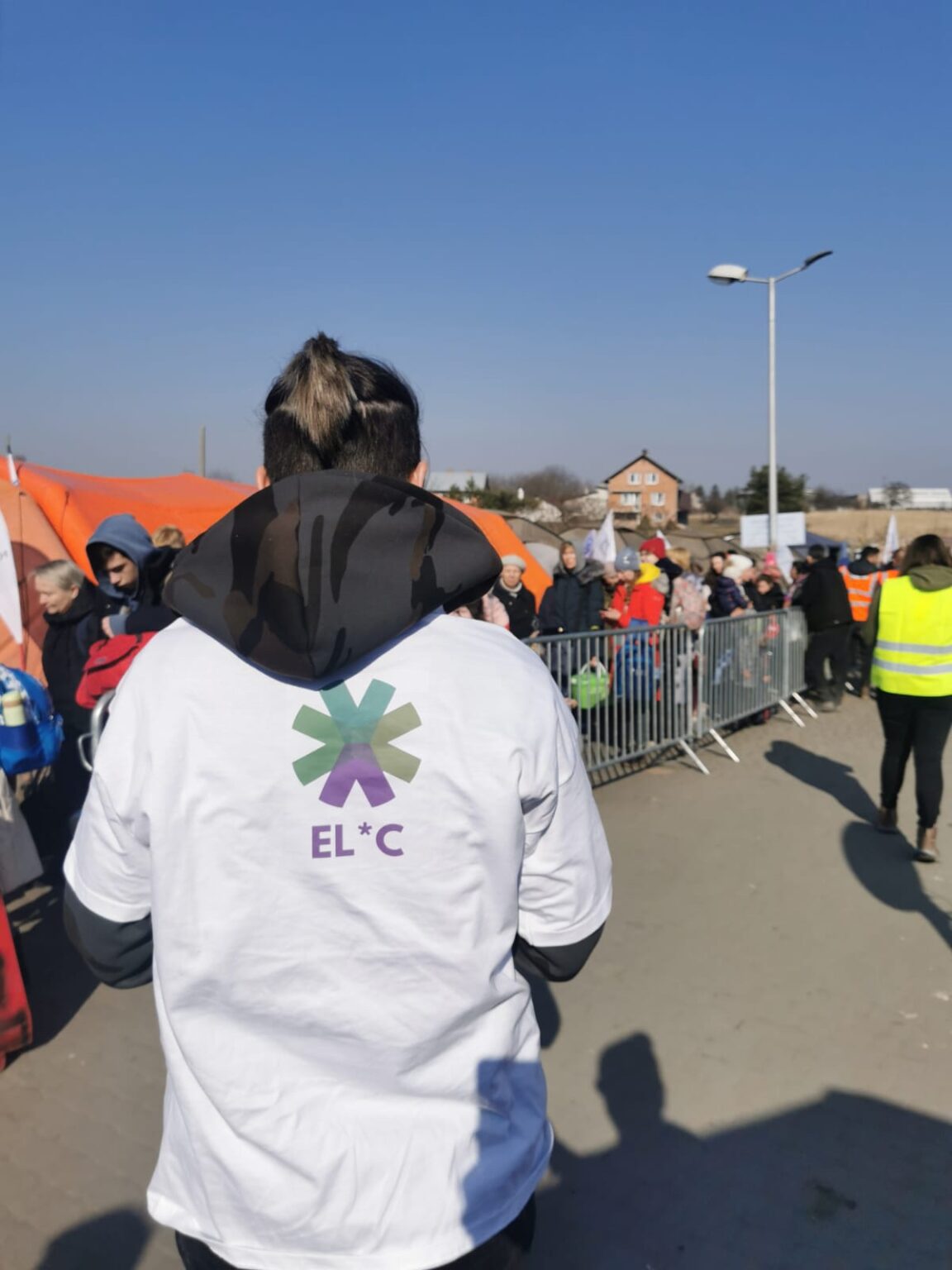
Like all members of the LGBTI community who have either remained in Ukraine, or are on the move to a safer place, lesbians are facing specific challenges and needs. This Lesbian Visibility Week, we’re learning more.
“When something goes wrong, we roll up our sleeves and get things done,” says Dragana Todorovic, board member of EL*C, otherwise known as Eurocentralasian Lesbian Community. Since the war in Ukraine erupted EL*C, have set up safe houses at the Polish border, relocated refugees across Europe and much more. But there is much more to be done, and as Dragana and her colleagues have identified, lesbians are facing very specific challenges as the conflict continues. Here Dragana tells us about work of EL*C activists on the frontlines in Ukraine, the needs that are arising as the war continues, and how you can support.
Dragana, can you tell us what the needs of lesbian communities still in Ukraine are?
In addition to the needs of the entire population within the country in terms of safety and essential goods, lesbian communities need spaces and routes that are inclusive and where they will not fear lesbophobic violence or discrimination, nor be compelled to re-closet themselves and their families.
In every conflict or humanitarian crisis, women, LGBT persons, and members of minority groups, find themselves in more precarious situations, as scapegoating and prejudice is often exacerbated. Our communities are also less likely to seek assistance from the mainstream providers due to lack of trust in the attitudes of authorities (and society at large) towards them and their families. We have indeed observed that LBTQI women and non-binary persons tend to rely on their own, community-based, support systems, which therefore need to be strengthened and sustained, so as to prevent isolation and scarcity for our communities.
This in turns underlines the paramount importance of supporting and protecting the activists themselves, who are leading such initiatives and have stayed in Ukraine, to help not just the LGBTIQ community, but the Ukrainian population as a whole, by delivering and dispatching goods across the country, towards the elderly, women and children, but also the military.
Despite this, lesbian activists remain highly exposed to lesbophobic violence, as we were unfortunately reminded recently, when Olena Shevchenko, the director of Insight and Board Member of EL*C, was tear-gassed in the street while unloading a truck of supplies.
Lastly, lesbian communities inside Ukraine need information — be it about where to find safe shelters inside the country or what their rights and options, should they need to leave the country. They need to be provided with easily accessible and up-to-date information to arrange safe routes for their travels — inside or outside Ukraine — and choose an adequate destination for their and their families’ potential relocation. This includes being able to reach out to the lesbian and refugee networks that will support them along the way and facilitate their integration in the host country.
What work is EL*C doing on the frontline?
On the front line, we started by setting up several safe houses at the Polish border and opened an emergency helpline, through which we provide information, organise pick-ups at the border crossings, and transfer people to one of the safe houses. We currently operate three of those, which can accommodate up to 25 persons and their pets, and where they can rest, access medical care if needed, and are supported in finding a long-term suitable relocation plan. We also coordinate with our partner organisations in other neighbouring countries to make sure that we cover Poland, Slovakia, Hungary, Romania and Moldova, and have re-granted to our partners in Romania and Moldova to support their efforts.
Beyond the borders, we have been managing a 500 household-strong network of hosts all over Europe, where we find good matches to relocate refugees, whether they have come through the safe houses or not. We arrange their journey, support them with the administrative obstacles that may occur, such as lacking documents to travel with their pets, transporting medical treatments and so on, and assist them through the processes of obtaining protection and settling in the destination countries.
Lasty, we rapidly mobilised to collect supplies upon the request of our Ukrainian partners, and set up a system to deliver essential goods, medication, or anything else needed to the shelters in Lviv and Chernivtsi. The last delivery was a shipment of several hundreds of cat containers and pet food, donated by the Foundation Brigitte Bardot!
“We started by setting up several safe houses at the Polish border and opened an emergency helpline, through which we provide information, organise pick-ups at the border crossings, and transfer people to one of the safe houses.”
Dragana Todorovic
It should be stressed that EL*C has been helping everyone coming its way, but we are naturally primarily contacted by lesbians* and their families, which extends also to parents and grand-parents, or in a very typical dyke-dramatic way, to exes and exes’ partners and their own parents and children. It is heart-warming and empowering to see how our community sticks together and how we construct our own support systems when we cannot rely on the traditional family and societal structures.
Have you identified specific needs of lesbians arriving from Ukraine to other countries?
Similarly to the lesbians internally displaced, lesbians arriving in other countries need to be protected while on the move and upon arrival, as they are often more isolated and therefore more exposed to abuse or trafficking for example. They also need to have effective access to their rights, free from lesbophobic discrimination and violence, and to be provided with safe and inclusive options, that recognise their specific needs.
Once in the country, one of the main difficulties that we have observed on numerous occasions, is the administrative and legal obstacles that couples and families may face, as they were not able to register in Ukraine and are therefore not legally recognised as such. This can create issues in terms of family reunification, and is especially of concern to the second parent, who doesn’t have any parental rights over their child. This is made even harder in cases of bi-national couples, where one of the mothers may not automatically benefit from the same protection as her Ukrainian family, not be granted a visa, and be left with contemplating a lengthy and uncertain asylum process.
“We have observed on numerous occasions the administrative and legal obstacles that couples and families may face, as they were not able to register in Ukraine and are therefore not legally recognised as such.”
Dragana Todorovic
Trans lesbians, alone or in a relationship face even more obstacles, from crossing the border — which they are most often denied, to obtaining temporary protection in the destination country with documents that do not match their gender identity, and ultimately to accessing legal gender recognition. We are in the process of supporting a trans woman in this regard, but it has required significant additional NGO mobilisation in the host country.
Another critical issue is to take specific measures to ensure an adapted and sensible integration of lesbians and their families in the destination country. Even in supposedly LGBTQ-friendly societies, if lesbians are just reintroduced to environments largely dominated by Ukrainian communities, they are again exposed to discrimination and violence from their peers.
LGBT-phobic incidents have unfortunately already been reported to us. For instance, the son of one of the families we helped, faced bullying in the school he was registered in in the Netherlands from other Ukrainian children. For a young uprooted child, already carrying the traumas of war and migration, it was especially violent to experience this new aggression. Authorities and educators should have taken into consideration the specific circumstances of this family and not expose them to this foreseeable, risk.
“Trans lesbians, alone or in a relationship face even more obstacles, from crossing the border — which they are most often denied, to obtaining temporary protection in the destination country.”
Dragana Todorovic
What can allies do to support lesbian groups from Ukraine?
Allies can help with donating or re-granting to the lesbian organisations inside Ukraine that are directly providing support to the communities, but also to all NGOs active at the borders.
Allies can also be very helpful in collecting and procuring the needed supplies, such hygiene products, food, and especially medicine, and ensuring their shipping to the border, from where we can deliver them to the shelters.
Lastly, they can join the efforts to safely relocate lesbians from Ukraine by helping us identify hosts, especially in countries where there is a high demand, such as Germany.
How are EL*C responding to the needs of lesbians/activists who are vulnerable in Russia? Have you been asked to help?
We were contacted early on by lesbian Russian activists, asking for help to leave the country as the international sanctions started being enforced, and for information regarding their possibilities to seek asylum in Europe. They were especially worried as they were taking part in the violently suppressed anti-war protests. We put them in contact with specialised queer refugee NGOs in EU countries, but it has become rapidly very difficult to maintain communication with those still in Russia due to the social media clampdown imposed by Russia.
We continue supporting those in Russia who reach out and will, when needed, arrange their travels and hosting.
“Allies can help with donating or re-granting to the lesbian organisations inside Ukraine that are directly providing support to the communities, but also to all NGOs active at the borders.”
Dragana Todorovic
ILGA-Europe is a member of the Dignity for All consortium, which provides emergency funds, advocacy support, and security assistance to human rights defenders and civil society organisations under threat or attack. To find out more please email us here.
#LesbianVisibility: Data shows that lesbian equality is still a long way off
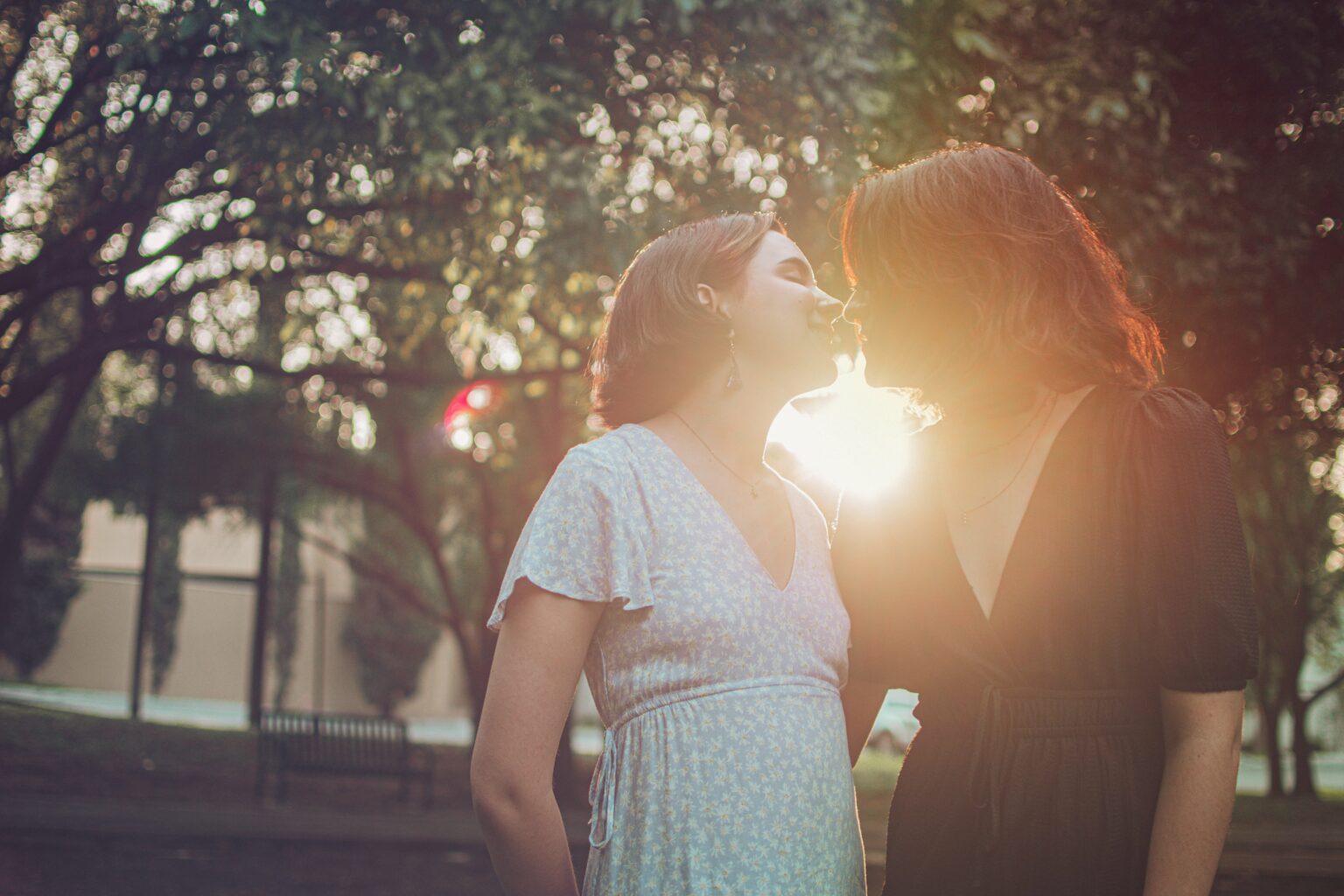
As #LesbianVisibilityWeek draws to a close, here’s why lesbian visibility matters every day.
Although lesbians constitute the first letter of the LGBTI acronym, lesbian women remain largely invisibilised in societies across Europe and Central Asia. Although there have been advancements in lesbian rights in some countries since the acronym gained popularity in the 90s, such as marriage equality, access to medically assisted insemination or protection against discrimination — the struggles of lesbian communities and individuals continue in 2021 and are part of cis, trans and intersex women everyday lives. These struggles notably impact the most marginalised lesbian communities at the intersections.
Data is a motor for change. EL*C, the Eurocentralasian Lesbian* Conference, recently submitted a gender analysis to the United Nations, noting that there’s a significant gap in research concerning lesbians as a result of the complex entanglements between misogyny, sexism and homophobia.
Therefore, to mark Lesbian Visibility Week 2021, we have collected some of the most striking facts from the Fundamental Rights Agency (FRA) LGBTI survey conducted in 2019 and published in 2020, regarding lesbian women in the European Union. Lesbian communities are very diverse. There some common struggles, but some affect more certain communities than others.
Here is some data from the FRA survey on the life experiences of lesbian women in the EU:
51% of lesbian respondents said that they avoid holding hands in public
No matter what country you live in, if you are a lesbian there is great possibility that you have avoided holding hands in public with your same-sex partner or lover, for fear of being assaulted, threatened or harassed. Showing love and connection shouldn’t come with dread.
27% of lesbian women experienced verbal in-person harassment due to being LGBTI in the last 12 months
Imagine living in a place where at least once per year you were insulted, called names and intimidated because of who you are. This is the reality for almost one-in-three lesbian women in the EU, without taking in account online harassment.
19% lesbian women have experienced housing difficulties
One lesbian woman in five is likely to experience housing difficulties in their lifetime. Discrimination permeates all areas of life, including when it comes to basic rights that enable dignity, health and security.
More figures
- 10% of lesbian women have experienced a physical or sexual attack in the last five years due to being LBTI.
- 16% of lesbian women experienced discrimination in the past 12 months when using healthcare or social services.
- 20% of lesbian women experienced discrimination at work in the past 12 months.
- 21% of lesbian women are rarely open about being LBTI.
- 33% of lesbian women who have experienced harassment did not report the last incident to the police because they did not think they would or could do anything.
- 36% of lesbian women were ridiculed, teased, insulted or threatened for being LBTI during their time at school.
- 75% of lesbian women said the perpetrator of their last physical of sexual attack because they were LBTI was male.
These statistics need to change, and at ILGA-Europe we are working every day with and on behalf of our member and partner organisations, advocating at the highest levels with politicians and policy makers, so that one day lesbian women can live their whole lives as themselves, without even having to think about it. The statistics about lesbian lives should not be visible just one day or week a year: #LesbianVisibilityEveryday
Call for Contributions: Violence and discrimination against LBTI women in sport submission to Council of Europe
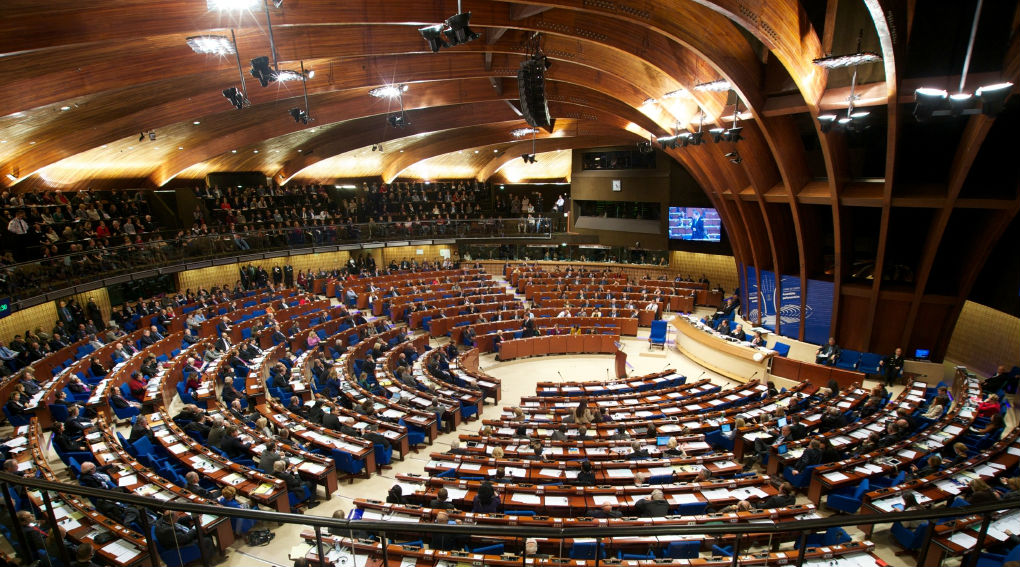
We, along with EL*C, TGEU, and OII Europe, are working to prepare a short submission to The Parliamentary Assembly of the Council of Europe on the specific needs and struggles of LBTI women in sports, and are looking for your inputs to this submission by 31 January.
The Parliamentary Assembly of the Council of Europe has been drawing attention to gender-based violence and discrimination for many years. The Assembly is now working on a report titled “The fight for a level playing field – ending discrimination against women in the world of sport”, which will result in a resolution to be adopted by the Assembly in 2021.
We are working to prepare a short submission on the specific needs and struggles of LBTI women in sports, and are looking for inputs to this submission
Inputs can be:
- focused at the local, regional, or national level, or presenting a full Council of Europe perspective
- focused on LBTI women as a whole or on specific groups within the LBTI communities
The format for submissions is informal, and can include individual testimonies, statistical data, or descriptions of situations and practices affecting these communities.
Inputs are due by 31 January 2021.
The questions on your email address and inclusion of reference to you or your organisation in the survey are mandatory; all other questions may be skipped if you choose.
ILGA-Europe welcome landmark decision by Kazakhstan Supreme Court to uphold the privacy of a lesbian couple

In what is seen as a first legal victory for LGBTIQ rights in Kazakhstan, the Central Asian country’s Supreme Court has overturned a decision by the Court of Appeal, saying it “committed a substantial and gross violation of the right to self-portrayal under Article 145 of the Civil Code and infringement of the constitutional rights” of a lesbian couple.
A controversial case that took a year and a half for Kazakhstan’s court system to hear has turned out to be the first legal victory for LGBTIQ rights in Kazakhstan.
In January 2018, two young women (unnamed for ethical reasons) were filmed kissing at a cinema in the city of Almaty by a man, Eldar Mamedov. Mamedov posted the video to Facebook, where it was viewed over 60,000 times and reposted on various other social networks. The faces of both women were fully identifiable and they were subsequently recognised on the streets, and asked questions like, “Have you not been killed yet?”
Comments under the video posted by Mamedov included death threats, calls for violence and other hate speech. Fearing for their safety, the two young women were forced to leave Kazakhstan for eight months.
On 19 February 2018, the women filed a lawsuit in the Auezov District Court of Almaty claiming that the fact of the distribution of the video without their consent was illegal. They said Mamedov’s distribution of the video on Facebook was unlawful, claiming nominal damages against the defendant. The women were supported by the Kazakhstan Feminist Initiative “Feminita”, while the LGBTIQ community also rowed in to support their case. Events were held to raise money to partially cover costs for legal support.
The District Court found in favour of the plaintiffs on 18 May last year, granting nominal compensation damages of 15,000 tenge (35 euro), so the women could not be accused of ‘cashing in’ on their circumstances. Mamedov filed an appeal with the Almaty City Court.
“Defender of morals”
On 17 August 2018, the Almaty City Court found in favour of Mamedov, overturning the District Court’s decision. Citing Article 20 of the Kazakhstani Constitution on the right to freely receive and disseminate information in any way not prohibited by law, the court added: “[our] society is not ready for open sexual relations between people of the same sex, the Law On Marriage and Family allows a legal union only between a man and a woman, same-sex unions are not allowed by the current legislation of the Republic of Kazakhstan.”
Saying the actions and behavior of the plaintiffs openly violated “the morale and moral foundations of society,” the court concluded that Mamedov “acted as a defender of the morals of the population.”
“Actions in the eyes of the majority of society are considered immoral and obscene, and the fact that this happens in front of children is generally immoral and affects the mental consciousness of children,” the judicial board said.
However on 30 July this year, the Supreme Court found in favour of the women, heavily criticising the decision of the Court of appeal to uphold Mamedov’s appeal. In its decision, the Supreme Court said that: “the Court of Appeal committed a substantial and gross violation of the right to self-portrayal under Article 145 of the Civil Code and infringement of the constitutional rights of plaintiffs” guaranteed by Article 18 of the Constitution of the Republic of Kazakhstan, according to which everyone has the right to privacy, personal and family secrets, protection of one’s honor and dignity.
An important message
Commenting on the Supreme Court’s decision, co-founder of “Feminita”, Zhanar Sekerbayeva said: “This will be a lesson for people in Kazakhstan who proclaim the struggle for morality. The violation of human rights and a call for hatred did not go unpunished. Both young women and our team repeat this important message: sue if your rights are violated! We are glad that the “Feminita” team supported the young women and we walked with them to the end! Thanks to everyone who was in solidarity with us!”
According to Björn Van Roozendaal, Programmes Director with ILGA-Europe, “A judicial precedent has been set and we sincerely commend persistence, patience and courage of the couple who stood up for their rights. We also congratulate our partners “Feminita” team, one of the initiative groups in the forefront of defending LBQ women’s rights in Kazakhstan, who have been with the couple from the start to the end.”
In a statement given to “Feminita”, one of the women said: “On 30 July, we left the courtroom with relief that finally, after a year and a half, we reached the end and we were not alone on this path. And it all started from the moment when we decided to spend a cozy evening and just watch a movie.”
The second woman added: “Few believed that we would defend our rights in court. Those who did not believe argued that our society was not yet ready for such changes. Many advised me not to be a “pioneer”, since it is pointless and useless, saying, “nothing will change anyway.” I believe that the opinion of society should not affect the struggle for our rights. If not you yourself, then who else will stand up for you?”
This story is based on the article of Kazakhstan Feminist Initiative “Feminita”. The original text may be accessed here.
European Court rules Medically Assisted Reproduction case ‘inadmissable’
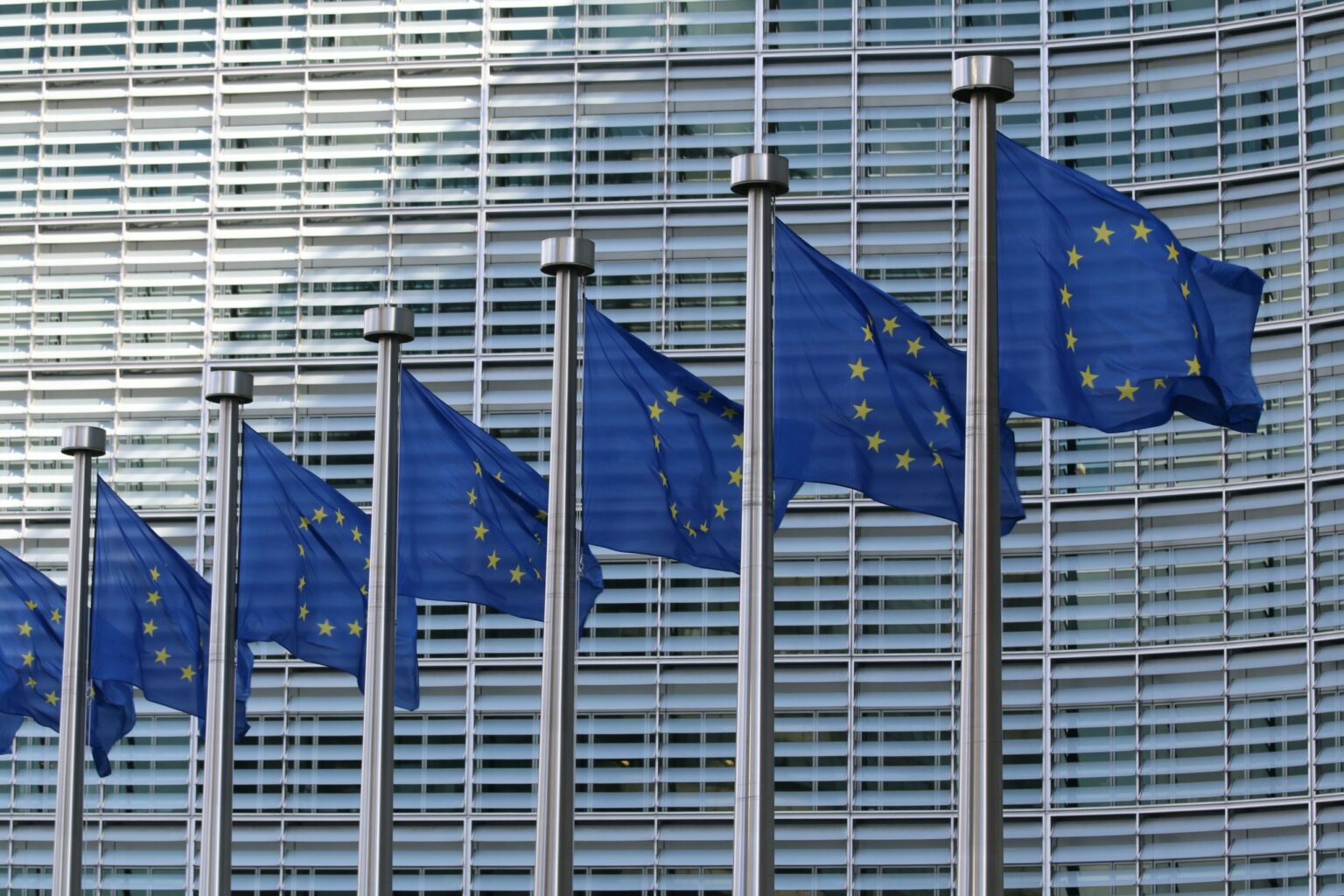
The European Court of Human Rights has today made an inadmissability decision in the case of ‘Marie Charron & Ewenne Merle-Montet v France’.
ILGA-Europe regret that the European Court of Human Rights has today made an inadmissibility decision on medically assisted reproduction (MAR) for a lesbian couple in France, and believes it is a missed opportunity to provide clarity on such an important fundamental rights issue affecting many rainbow families across Europe.
Given the current context in France where bioethics consultations are underway aimed at tabling a legislative bill to Parliament on this in the coming year it would have been a timely judgment.
The National Consultative Ethics Committee (CCNE) recommended in June 2017 that MAR should be extended to single women and women in same-sex partnerships, and a 2017 survey by IFOP and ADFH highlights that the majority of the French public is in favour of providing equal access to MAR to all women regardless of sexual orientation or partnership status.
Katrin Hugendubel, Advocacy Director for ILGA-Europe, said: “The inclusion of the topic of extending MAR to single women and women in same-sex partnerships in the current bioethics consultation represents another opportunity to tackle discrimination single women and lesbian same-sex couples still face today. There have been clear signs of support from a majority of people in France as well as national institutions over the past year. ILGA-Europe look forward to a positive and expeditious outcome of this consultation.”